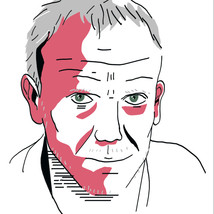Philippe Debongnie
Dans Kairos n° 30 (été 2017), je proposais une analyse-synthèse de l’évolution politique récente en Occident (Europe et Amérique du nord, principalement). Après l’épisode covidien, il est temps de refaire le point. D’abord, force est de constater que depuis 6 ans la situation a à la fois empiré et s’est complexifiée, au point que la fausse conscience(1), qu’elle soit limitée, débridée ou structurée(2), règne dans tous les camps et parmi ceux qui essaient d’y voir clair, moi y compris ! Cet article adonc la modeste ambition de la dissiper autant que possible et de conceptualiser les choses au mieux, sans œillères idéologiques. En sus des constats, il avancera principalement des hypothèses que l’avenir confirmera, ou pas. Je me targue cependant d’avoir gardé la tête froide là où d’autres produisaient des énoncés, inconsciemment victimes de leurs peurs ou de leurs biais. Ces énoncés ont ensuite été relayés et d …
Vous devez être abonné pour visualiser cette page.
Si vous êtes déjà abonné, veuillez-vous connecter.
Dans le cas contraire, abonnez-vous dès à présent.
Si vous êtes déjà abonné, veuillez-vous connecter.
Dans le cas contraire, abonnez-vous dès à présent.
Notes et références
- Préférons ce terme à « confusion », trop galvaudé. Quant au « confusionnisme », c’est une sottise conceptuelle que j’ai précédemment démontée (débunkée !) in Kairos, n° 53, février/mars 2022. Je renvoie à Joseph Gabel, La fausse conscience et autres textes sur l’idéologie, L’Échappée, 2023. Il écrit, p. 47 : « […] la conscience authentique, fruit du dépassement dialectique de la fausse conscience, n’est pas […] une donnée immédiate mais une conquête […]. ».
- Umberto Eco, Reconnaître le fascisme, Grasset, 2017, p. 31. L’auteur parle ici de « confusion structurée », mais l’adjectif conviendrait aussi à la fausse conscience.
- Il va de soi que je ne le considère pas comme un néo-nazi.
- Cf. Jean-Claude Michéa, Les mystères de la gauche. De l’idéal des Lumières au triomphe du capitalisme absolu, Climats, 2013.
- Notamment en entérinant la gestion autoritaire du covid.
- Certaines productions du Centre Jean Gol, think tank du MR, sont caricaturales à cet égard. Voir www.cjg.be.
- Cf. Alain Deneault, Politiques de l’extrême centre, Lux, 2016.
- Tel l’« économiste atterré » David Cayla, cf. Déclin et chute du néolibéralisme, De Boeck Supérieur, 2022.
- Christian Laval & Pierre Dardot, Ce cauchemar qui n’en finit pas. Comment le
néolibéralisme défait la démocratie, La Découverte, 2016, p. 40. - Pierre Dardot, Haud Guéguen, Christian Laval & Pierre Sauvêtre, Le choix de la
guerre civile. Une autre histoire du néolibéralisme, Lux, 2021, p. 274. - Sauf bien évidemment en Chine, par exemple.
- Cf. « Le néolibéralisme est un fascisme », in Le Soir, 01/03/2016.
- Hormis en Espagne, au Portugal et en Grèce, qui furent dirigées par des dictateurs (Franco, Salazar, les colonels) suite à des coups d’État.
- Considérée comme une nostalgique de Mussolini, Meloni ne fera finalement pas sortir son pays de l’UE, de la zone euro et de l’OTAN. Comme souverainiste d’extrême droite, on fait mieux ! Les néolibéraux italiens peuvent dormir sur leurs deux oreilles.
- J’ai sciemment évité ici l’épithète « complotiste », mot piégé par excellence qui fut jeté par le gouvernement, les médias et la gauche bien-pensante à la tête de tous ceux qui eurent l’heur de critiquer la politique « sanitaire ». Nous dirons qu’il existe un certain nombre de partisans de la théorie du complot, comme QAnon, à côté d’un nombre beaucoup plus important de gens ordinaires qui ne font qu’exercer leur esprit critique et manifester leur scepticisme et leur désarroi face au spectacle politico-médiatique.
- Pier Paolo Pasolini, La langue vulgaire, La Lenteur, 2021, p. 15.
- Simon Critchley, Une exigence infinie. Éthique de l’engagement, politique de la
résistance, François Bourin, 2013, p. 167. - Heureusement, une minorité éclairée dans la gauche l’a également compris,
comme le Collectif 29 de Liège, la « gauche anti-covidiste ». - Sauf à quelques exceptions près comme en Autriche, avec les deux gouvernements du chancelier Wolfgang Schüssel (ÖVP) allié au FPÖ (20002003).
- La doxa covidiste a classé le terme « mondialiste » dans la catégorie « complotisme ». Pourtant, les mondialistes, n’est-ce pas l’autre nom de l’oligarchie capitaliste mondialisée, expression qui mettait tout le monde d’accord à gauche avant l’épidémie ? Voir Monique Pinçon-Charlot (Le président des riches. Enquête sur l’oligarchie dans la France de Nicolas Sarkozy, Zone/La Découverte, 2010), Geoffrey Geuens (La finance imaginaire. Anatomie du capitalisme : des « marchés financiers » à l’oligarchie, Aden, 2011) ou encore Hervé Kempf (L’oligarchie, ça suffit, vive la démocratie, Seuil, 2011), trois auteurs bien de gauche. À moins que ce ne soit des « confusionnistes », nous vérifierons auprès des antifas…
- Remarquons qu’il n’est nul besoin d’être néolibéral pour souhaiter contrôler les masses par l’ingénierie sociale, voir l’exemple de la Chine communiste mercantiliste.
- On imagine aisément un Daniel Cohn-Bendit réagir de la sorte en le beuglant dans tous les médias friands de sa faconde.
- Je mets au défi quiconque d’y parvenir, la créativité politique a ses limites.
- Inutile de citer le contre-exemple des Black blocs. D’une part, comme ils ne s’en prennent qu’à du matériel, ces casseurs ne sont pas violents mais saboteurs ; d’autre part, il faudrait prouver qu’ils sont réellement des anarchistes.
- Réfractions n°9, automne/hiver 2002, « Au-delà de l’économie : quelles alternatives ? », p. 15.
- Cf. Marius Blouin, De la technocratie. La classe puissante à l’ère technologique, Service compris, 2023.
- Nicolas Bonnani, Que défaire ? Pour retrouver des perspectives révolutionnaires, Le monde à l’envers, 2022, p. 62.
- À ce sujet, cf. Raffaele Simone, La grande migration et l’Europe (Gallimard, 2021), un essai qui aborde cette épineuse question sans préjugés idéologiques, une fois n’est pas coutume.
- Précisons que, contrairement aux beaux esprits de la gauche libérale qui les jugeaient de loin, moi je les ai rencontrés sur le terrain à plusieurs reprises !








